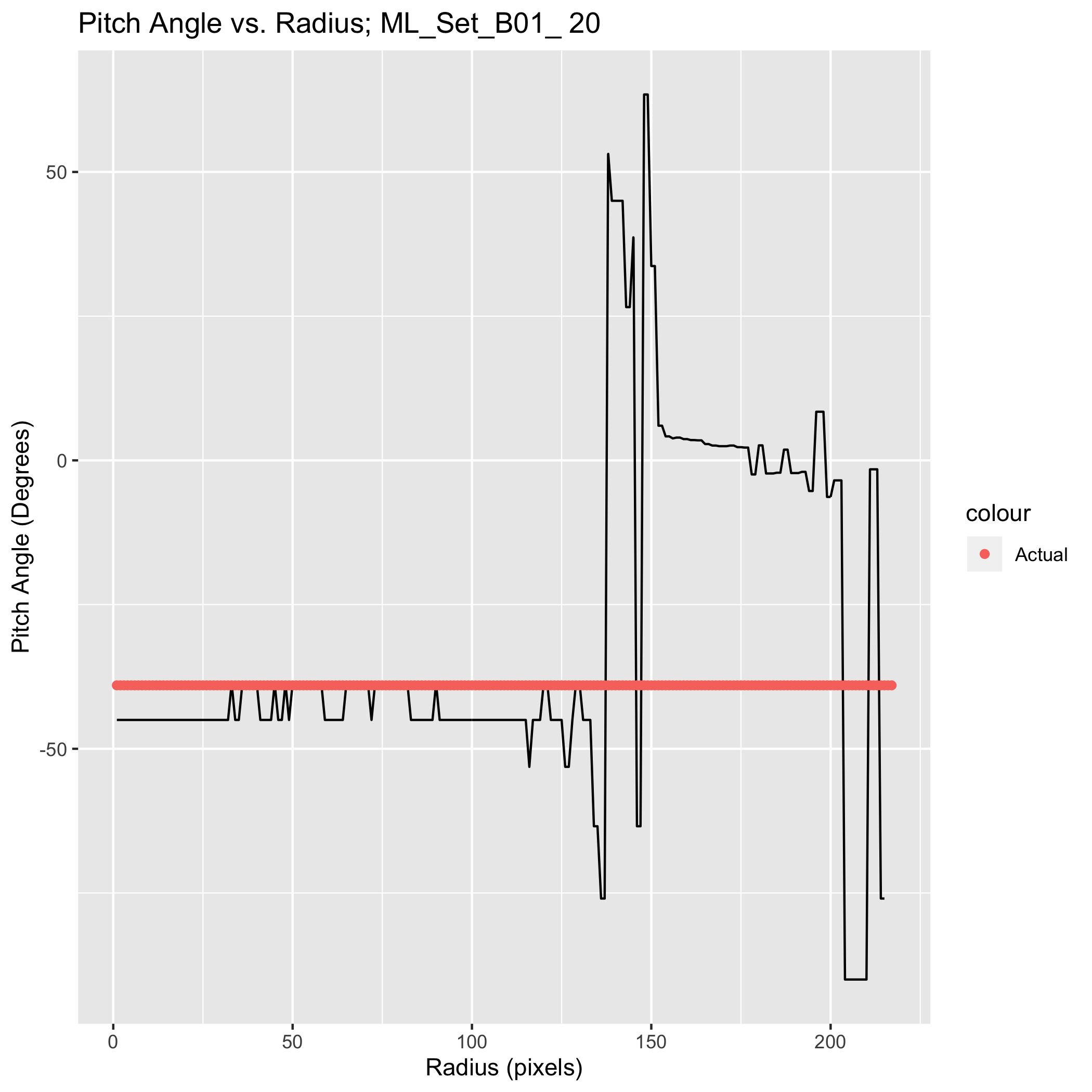I am working on a machine learning problem in which I am attempting to find a stable region in a spiral galaxy. The PI I'm working with asked me to use machine learning as a tool to solve the problem. I have created some visualizations of my data, for instance:as bellow.
In this image, you can see there is a flat region between 0 and roughly 30 pixels, and between 90 pixels and 110 pixels. I have received suggestions to use an RNN LSTM model that can identify flat regions, but I wanted to hear other suggestions of other neural network models as well.
The PI I'm working with suggests to feed my data visualization images into a neural network and have the neural network identify said stable regions. Can this be done using a neural network, and what resources would I have to look at? Moreover, can this problem be solved with RNN LSTM? I think the premise of this was to treat the radius as some temporal dimension. I've been extensively looking for answers online, and I cannot quite seem to find any similar examples.

